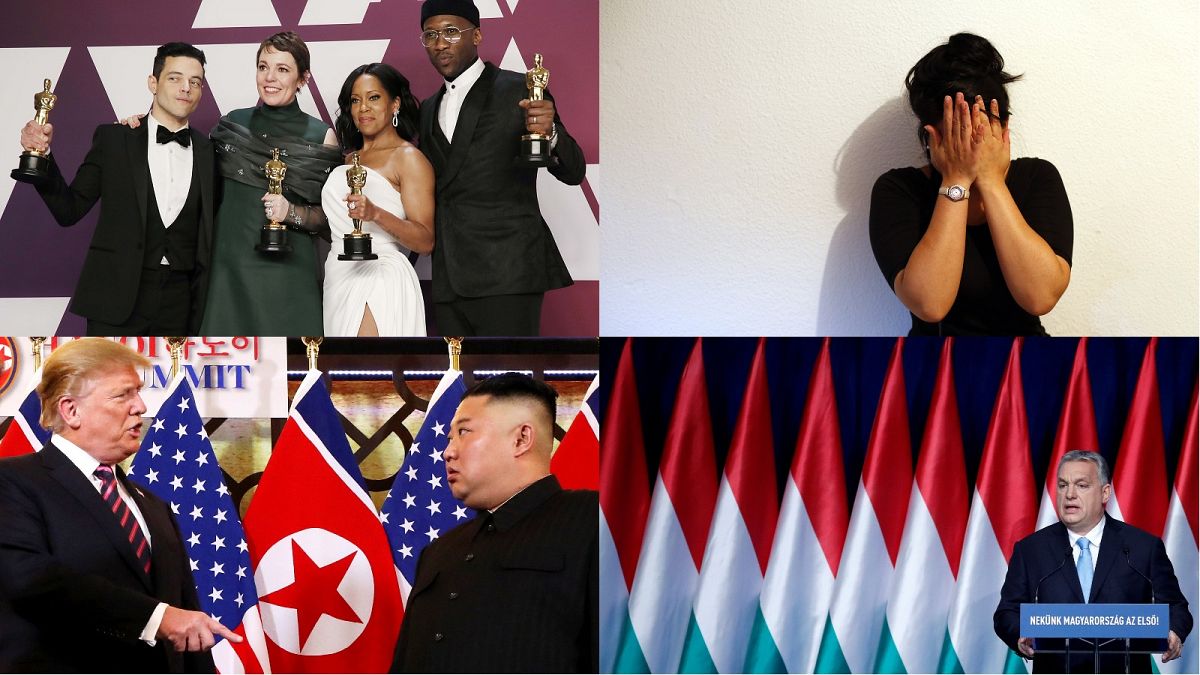We bring you our weekly round-up of all the View articles driving opinion across Europe and beyond over the last seven days.
Welcome to our weekly round-up where we take a look at the hot topics that have had you talking this week. With powerful testimonies from people who know Viktor Orbán personally to the conquering of the charts and the record books by Ariana Grande, we look at the overthrow of the old world order by aiming to give you a flavour of the opinions here on View that have driven debate across Europe and beyond over the last seven days.
At many crucial points in our shared history, people have challenged the status quo and overturned what has gone before. Our modern era is no different. If anything, the struggle to obliterate old norms is arguably being fought harder now than it has ever been in the past. And politics is not the only battleground in this culture war. The world of business is being shaken to its core by systemic changes to the world order while technology and innovation are being pushed to keep up with the frenetic social attitudes of the times, as we have seen over the past week in the articles published on View.
Someone who is no stranger to political earthquakes is Viktor Orbán. He is also no stranger to controversy, taking Hungary closer to the brink of becoming an authoritarian state. To those who know him, this trajectory is not coincidental. It is the result of years of planning and designs on reaching the highest echelons of government. In a revealing piece by one of the first enablers of Orbán’s Fidesz party, András B. Vágvölgyi gives an insight into the man behind one of the most audacious, meteoric rises in European political history – one that threatens the current order on the European continent. " Orbán’s political appetite knows no limits,” he writes, warning that Orbán’s ambitions extend beyond Hungary’s borders. EU bureaucrats beware.
A strongman cut from the same cloth as Orbán, Abdel Fattah el-Sisi is yet another example of a leader carried to power on a populist wave promising to demolish the old order. Just as Orbán has done with manufacturing grievance over the migrant crisis, Sisi is, according to contributor Dr Amr Darrag, using an insurgency in the Sinai Peninsula to consolidate his grip over Egypt. Coming to power in a coup d’état in 2013, in which then elected president Mohamed Morsi was swept from office and imprisoned, Sisi has taken his cue from the authoritarian leaders’ playbook and brutally repressed the Egyptian people while international leaders, particularly in the EU, turn a blind eye.
The EU has faced similar criticisms from detractors over its links to Iran. Once a pariah state which overthrew its old monarchical regime, Iran has slowly stepped back into the bosom of the international community – but not without controversy and the vocal opposition of the United States. Contributor David Ibsen voiced concerns over the normalisation of ties with Iran this week in his View piece, claiming: “Idealism in international relations is a dangerous thing, particularly when it comes to dealing with rogue states.” Iran, he writes, is autocratic, brutally repressive to its citizens and a proponent of using state-sponsored terrorism to achieve foreign policy aims.
In a different form of coup, pop star Ariana Grande shattered a record that was more than half a century standing. She became the first person since the Beatles to dominate the Hot 100 chart with three singles in the top three, something that had not been surpassed for 55 years. Maura Johnston explains just how it happened with a piece for the View this week.
It is not the pop world that harkens back to an ‘old world.’ Sometimes the system takes many forms in order to survive. Contributor Lynn Stuart Parramore wrote about female digital assistants like Siri and Alexa this week, female digital assistants hearken back to the bad old days when females did the work — and everyone else got the benefits.
Millennials, the people considered capable of making change, are the least able to do so. Why? Because they are more prone to burnout, according to psychoanalyst Josh Cohen. Not everyone is convinced, however, that the pressures to perform in the workplace and achieve life goals by a certain age. As Cohen writes, “The rejection of the idea of millennial burnout seems to usually take two broad forms: that it’s an elaborate cover story for entitled laziness or that it’s a fancy term for common fatigue brought on by a long to-do list.” Many symptoms related to burnout are bowing many of the Millennial generation, including depression, anxiety, insomnia and substance abuse. But what is the lesson that needs to be learnt? That working harder and be better at everything results in exhaustion and anxiety.
Also worthy of your attention this week was an article by contributor Victor Cha which delved into the implications of a bad North Korea deal for Donald Trump’s standing in America, and for the security of the country itself. One of the other big stories of the week was the Oscars, which, according to blogger Ani Bundel, “made a fairly successful pitch for relevance” this year in no small part because of its recognition of diversity.
Are you a recognised expert in your field? At Euronews, we believe all views matter. Contact us at view@euronews.com to send pitches or submissions and be part of the conversation.


